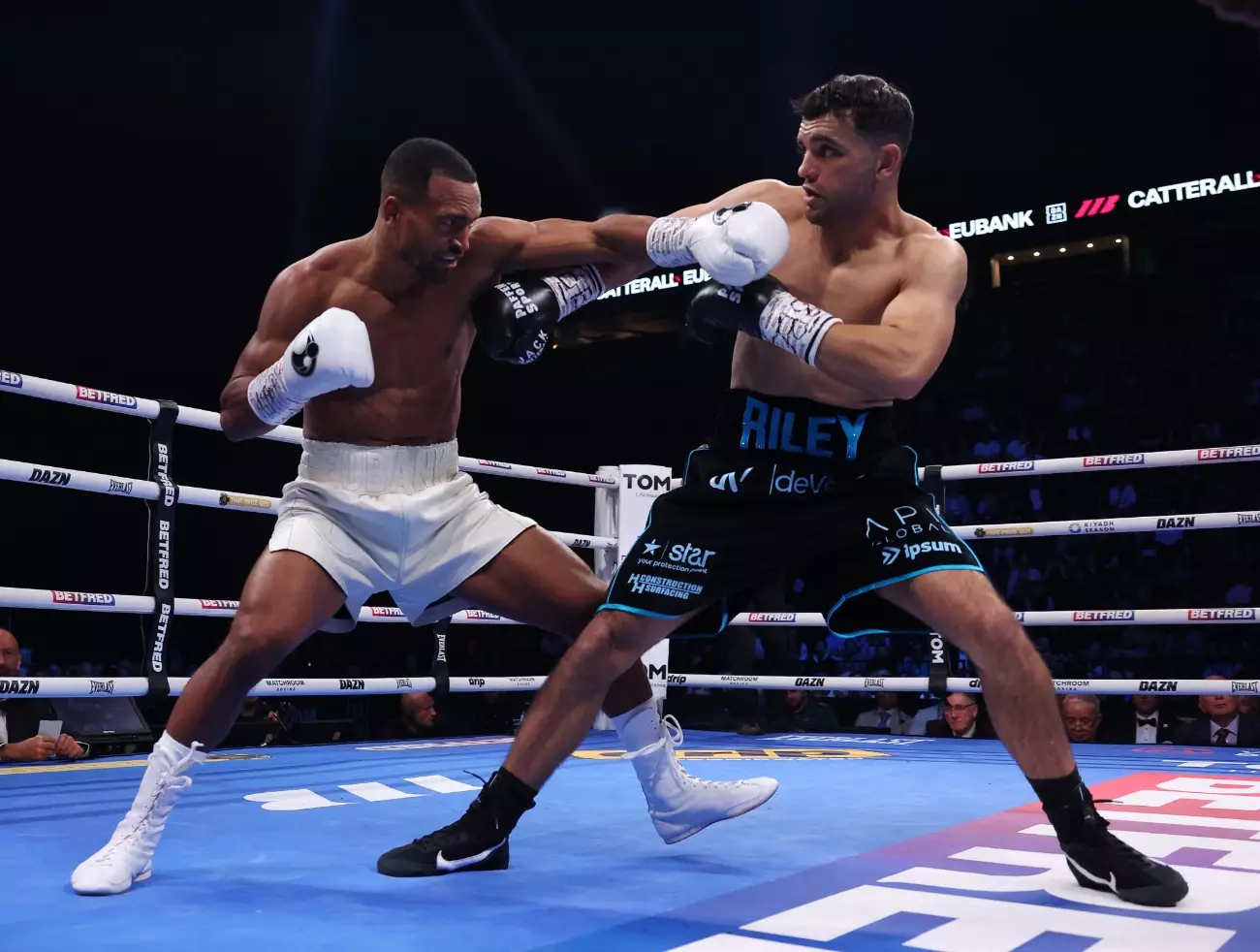Boxing often thrives on narratives that blend skill, resilience, and the unpredictable nature of the sport. The recent bout between Jack Catterall and Harlem Eubank exemplifies this blend, revealing not only the physical contest but also the murky waters of fight expectations and career direction. Catterall’s victory, awarded via a seventh-round technical decision, is more than just a stat line; it’s a reflection of strategic battles, questionable refereeing, and the pressing need for clarity in a fighter’s trajectory. To view this fight purely as a win credits the record but neglects the intricacies that make it a defining moment—one that exposes both the limitations and strategic tendencies of the boxers involved.
This fight was characterized by a frustrating, often ineffective display of boxing, where neither fighter truly distinguished themselves with compelling offense. Instead, it devolved into a series of clinches, grabs, and grappling that made for an uninspiring spectacle. Harlem Eubank, previously unbeaten, failed to capitalize on his natural advantages, notably his power, which was noticeably muted during the fight. Meanwhile, Catterall appeared to be on the back foot, slower and lacking the punch resistance needed at 147 pounds—his debut at the welterweight division revealed vulnerabilities that many had speculated about beforehand.
The abrupt halt due to the cut, which resulted from an accidental clash of heads, further muddied the narrative. While cut stoppages are commonplace, the timing—just one second into the seventh round—generated criticism and questions about the referee’s decision-making. Was this an unavoidable accident or a fortunate break for Eubank? The ambiguity around such stoppages often leaves fans and pundits divided, but it undeniably casts a long shadow over the legitimacy of the victory. The reduction of the bout to a technical decision, rather than a definitive knockout or points win, leaves a lingering sense of incompleteness in Catterall’s triumph.
Strategic Failures and the Need for Reinventing the Approach
At its core, this fight exposes vulnerabilities that go beyond physical ability. Catterall’s performance lacked the assertiveness and power typical of his earlier endeavors. His tendency to retreat and rely on counterpunching is a double-edged sword; it can conserve energy and create openings but becomes monotonous and predictable when he cannot impose his rhythm. What’s more troubling is that he struggled to sustain offensive pressure, which diminishes a fighter’s aura and confidence.
For Eubank, the fight was an opportunity missed. Instead of leveraging his natural advantages—agility, power, and youth—he resorted to a cautious, often passive approach. His tendency to grab and wrestle suggests frustration and a reluctance to fight openly, which does little to inspire confidence in viewers or promote his prospects moving forward. These dynamics point to a broader issue: both fighters seemed caught in a script of survival rather than pursuit of victory. Boxing, at its highest level, demands adaptation and mental resilience—a lesson both could learn from this experience.
Of particular concern is Catterall’s performance at welterweight, his debut in a new weight class. The exchanged punches lacked the impact expected at this level, and his diminished energy and speed are clear indicators of a work-in-progress rather than a finished product. It’s a stark reminder that fighters should not be rushed into new divisions without proper preparation and strategy, lest they fall into patterns that undermine their confidence and legitimacy.
Looking Ahead: The Future of Catterall and the Realities of Title Pursuit
Despite the frustrations, this fight has set the stage for a pivotal moment in Catterall’s career. Promoter Eddie Hearn’s comments reveal a clear intent: to reposition Catterall for a shot at a world title rather than rematching Eubank. This decision underscores a harsh truth—sometimes, victory is less about the outcome and more about strategic positioning within the brutal landscape of boxing’s rankings.
The plan to target the vacated IBF title—after Jaron Ennis’s departure—speaks volumes about the sport’s inherent opportunism. Makers of such fights often prefer to chase the coveted titles rather than revisit uncertain rematches, especially when the original bout was marred by controversy and lackluster performance. The proposed interim route—facing the winner of Crocker versus Donovan—offers a promising yet cautious path. These fighters are neither elites nor guaranteed challengers, but they represent stepping stones that could elevate Catterall’s profile.
However, this pursuit is riddled with potential pitfalls. The choice of opponents, the division of confidence, and the readiness of Catterall itself—all these factors will determine whether he can capitalize on this opportunity. It’s evident that the sport demands not merely a desire for titles but a comprehensive strategy to develop skills, sustain physical conditioning, and foster mental toughness. Major wins often come not from the fighters’ raw talent alone but from meticulous planning and adaptability—areas that both Catterall and his team must hone further.
The reality of boxing today is that victories are often the beginning of another arduous journey, not the final destination. For Catterall, this win, flawed and controversial as it may be, is a stepping stone if he chooses to learn and evolve. For the sport itself, it’s a reminder that behind the glitz and glamor lies a relentless pursuit of greatness, often built on resilience, strategic cunning, and relentless self-criticism. Can Catterall leverage this experience to forge a path toward genuine greatness? The answer hinges on his willingness to confront his shortcomings and embrace the brutal honesty that top-tier boxing demands.

